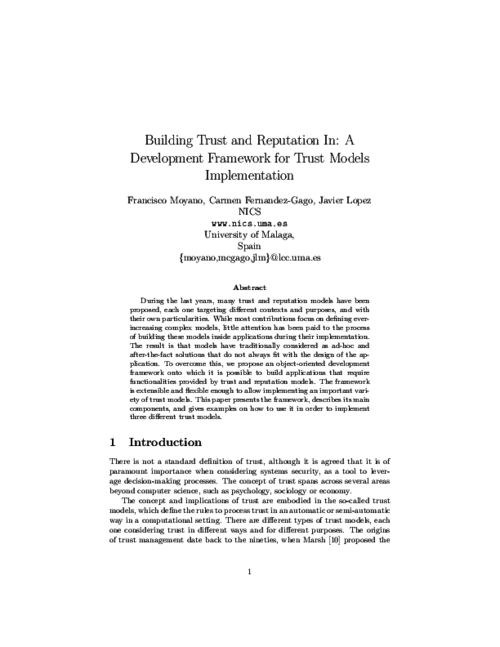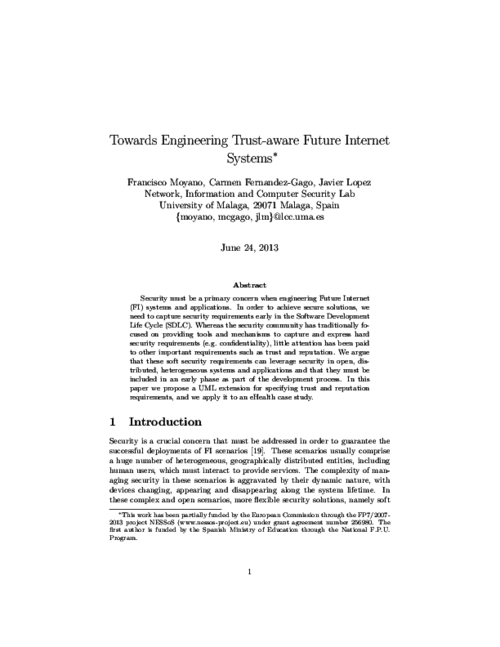 ] Type Year
] Type Year 8th International Workshop on Security and Trust Management (STM 2012), A. Jøsang, P. Samarati, and M. Petrocchi Eds., LNCS 7783, Springer, pp. 113-128, 2013. DOI
Abstract
During the last years, many trust and reputation models have been proposed, each one targeting different contexts and purposes, and with their own particularities. While most contributions focus on defining ever-increasing complex models, little attention has been paid to the process of building these models inside applications during their implementation. The result is that models have traditionally considered as ad-hoc and after-the-fact solutions that do not always fit with the design of the application. To overcome this, we propose an object-oriented development framework onto which it is possible to build applications that require functionalities provided by trust and reputation models. The framework is extensible and flexible enough to allow implementing an important variety of trust models. This paper presents the framework, describes its main components, and gives examples on how to use it in order to implement three different trust models.

3rd International Workshop on Information Systems Security Engineering (WISSE 2013), X. Franch, and P. Soffer Eds., LNBIP 148, Springer-Verlag, pp. 490-501, Jun 2013. DOI
Abstract
Security must be a primary concern when engineering Future Internet (FI) systems and applications. In order to achieve secure solutions, we need to capture security requirements early in the Software Development Life Cycle (SDLC). Whereas the security community has traditionally focused on providing tools and mechanisms to capture and express hard security requirements (e.g. confidentiality), little attention has been paid to other important requirements such as trust and reputation. We argue that these soft security requirements can leverage security in open, distributed, heterogeneous systems and applications and that they must be included in an early phase as part of the development process. In this paper we propose a UML extension for specifying trust and reputation requirements, and we apply it to an eHealth case study.
